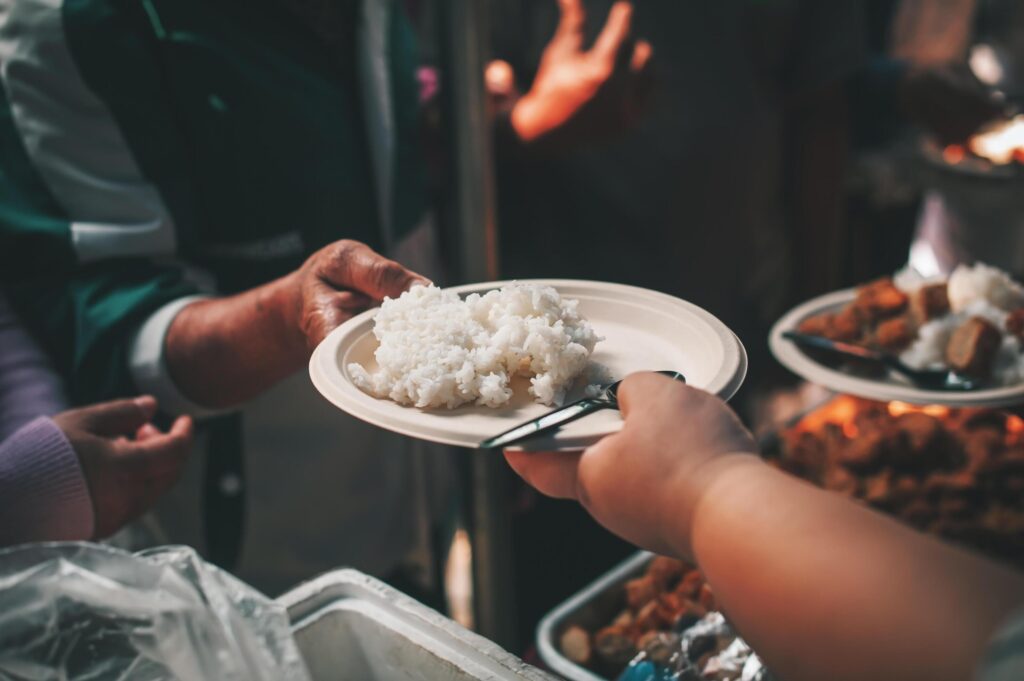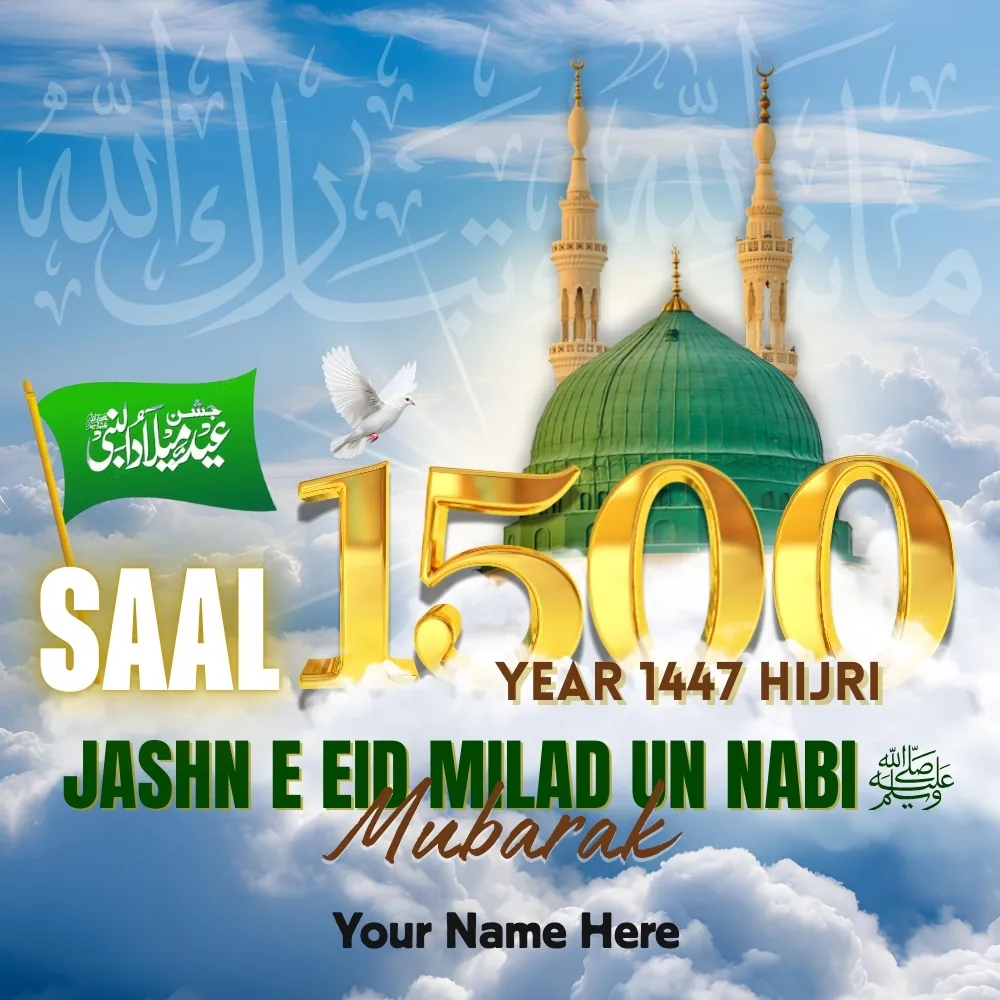Eid Milad un Nabi is a major Islamic holiday. It marks the birth of the Prophet Muhammad (Peace Be Upon Him). This day is filled with joy and reflection for Muslims worldwide. It is a time to honor his life and teachings. The celebration is a vibrant tradition. It shows the deep love Muslims have for their Prophet. His message brought light and guidance to the world. It ended an age of ignorance and injustice. Understanding this day means understanding the heart of Islam itself.
The ways people celebrate can differ. Some communities have large, festive gatherings. Others mark the day with quiet prayer and study. Despite these differences, the core purpose is the same. It is a day to express gratitude. Muslims thank God for the gift of the Prophet’s guidance. They recommit to living by his noble example. The atmosphere is one of peace, love, and community spirit. Eid Milad un Nabi
The joyous illumination of mosques and homes is a common sight during Eid Milad un Nabi.
The Historical Context and Origin
The celebration’s history is deep and fascinating. Formal public celebrations began centuries after the Prophet’s passing. One of the earliest state-sponsored events was in Egypt. The Fatimid dynasty held gatherings in the 10th century. These were simple events. They involved Quran recitations, sermons, and giving alms to the poor. The practice grew over time. It became more widespread in the 12th century. A ruler in Erbil, Sultan Muzaffar al-Din, held large celebrations. These included feasts and scholarly meetings. This helped popularize the tradition. Eid Milad un Nabi
The permissibility of the celebration has been discussed by scholars. This is a natural part of Islamic intellectual history. Some scholars viewed it as a praiseworthy innovation. They argued it inspires love for the Prophet. It encourages people to follow his Sunnah. Other scholars held a different view. They felt it was an unnecessary addition to religious practice. This diversity of opinion exists within Islamic law. For most Muslims, the day is a valued part of their faith. It is a positive expression of devotion. Eid Milad un Nabi

Ancient manuscripts often depict the story of the Prophet’s birth.
The Spiritual Significance
The day holds deep spiritual meaning. It is an act of gratitude to God. Muslims believe Allah sent the Prophet as a great mercy. The Quran says He sent a messenger from among themselves. This messenger recited verses, purified people, and taught wisdom. Celebrating his birth is a way to thank God for this blessing. This gratitude is a key part of the Muslim faith. It helps strengthen a believer’s connection to God. Eid Milad un Nabi
The day also serves as a spiritual refresher. It is a chance to reconnect with the Prophet’s teachings. Daily life can sometimes make people forgetful. This occasion brings the focus back to his life and character. It reignites love for the Prophet. This love is a powerful motivator. It inspires Muslims to be better people. They strive to be more honest, patient, and compassionate. The goal is to improve oneself and help others. Eid Milad un Nabi
Global Traditions and Cultural Expressions
Eid Milad un Nabi is celebrated with diverse traditions worldwide. Each culture adds its own beautiful touch. In South Asia, the day is marked with great enthusiasm. Cities are decorated with lights and green flags. Large, peaceful processions fill the streets. People sing poems praising the Prophet. Charity is a major focus. Food and sweets are distributed to everyone. Eid Milad un Nabi
In the Middle East, the tone is often more reserved. The focus is on religious knowledge. Gatherings in mosques feature stories about the Prophet’s life. Scholars give talks about his teachings. Families come together to pray and remember. In Turkey, the day is a holy night. People recite a special poem called the Mevlid. This poem narrates the story of the Prophet’s birth. These different traditions show the unity in diversity of the Muslim world. Eid Milad un Nabi
| Region | Common Traditions | Unique Cultural Elements |
|---|---|---|
| South Asia | Large processions, Na`at recitals, Illuminations | Distribution of sweet rice (Zarda/Halwa) |
| Middle East | Mosque gatherings, Religious lectures | Focus on family visits and prayers |
| Turkey & Balkans | Prayers, Reading of Mevlid-i Şerif | Referred to as a “Kandil” (lamp) night |
| Southeast Asia | Religious lectures, Community feasts | Wearing traditional clothing, visiting elders |
| North Africa | Sufi dhikr circles, Singing religious songs | Making special cookies and pastries |
The Core Message of the Prophet
The Prophet’s core message was one of peace and mercy. He was sent as a mercy to all the worlds. His teachings emphasized compassion for all creation. He taught equality and justice for everyone. His Farewell Sermon is a famous example. He stated that no Arab is superior to a non-Arab. He also emphasized the rights of women. He taught the golden rule of loving for others what you love for yourself. Eid Milad un Nabi
His life was a perfect example of this message. He was known for his forgiveness and patience. He was kind to the weak and protected the vulnerable. He ended the cruel practice of female infanticide. He established rights for women and children. His agreements with people of other faiths promoted peaceful coexistence. Celebrating his birth means remembering these values. It is a call to action for every Muslim to embody these principles. Eid Milad un Nabi The Concept of Mercy in Islam
“I have been sent only to perfect the good character.” – A saying (Hadith) of the Prophet Muhammad (PBUH).
Common Practices and Activities
Many practices define the celebration. Special gatherings are the most common. These are called Mawlid or Mehfil-e-Milad. People gather to remember the Prophet. They recite verses from the Quran. They sing poetic praises known as naat . Scholars give speeches about the Prophet’s life. These gatherings create a strong sense of community and love. Eid Milad un Nabi Understanding Islamic Holidays
Charity is another essential practice. Giving to the poor is a central part of the day. Many people prepare and distribute food and sweets. This act reflects the Prophet’s own generosity. It ensures everyone can share in the joy of the day. Muslims also send countless blessings upon the Prophet. They may fast, pray extra prayers, and seek forgiveness. The day blends celebration with worship and charity.

Distributing food and aid to the less fortunate is a central practice.
The Seerah: Studying the Life of the Prophet
Studying the Prophet’s life is crucial. His biography is known as the Seerah. It is not just a history book. It is a practical guide for life. It shows how he dealt with every situation. It provides context for the Quran’s teachings. Learning his story teaches lessons in patience, leadership, and faith. It makes his example relatable and attainable. Eid Milad un Nabi
Eid Milad un Nabi is a perfect time to study the Seerah. Many communities hold lectures and conferences on this topic. Parents tell stories about the Prophet to their children. This helps the next generation connect with their role model. Understanding his struggles and triumphs is inspiring. It helps Muslims navigate their own modern challenges. The Seerah is a timeless source of guidance.
The Debate Surrounding the Celebration
There is a historical debate about this celebration. Some Islamic scholars do not endorse it. Their view is based on the concept of innovation. They argue that the Prophet and his companions did not celebrate it. Therefore, it should not be introduced as a religious practice. They aim to preserve the original practices of Islam. The Prophet Muhammad: A Brief Biography
Many other scholars and Muslims worldwide do celebrate. They see it as a positive cultural innovation. They argue it promotes good things like love for the Prophet and charity. They distinguish between different types of innovation. For them, this celebration aligns with Islamic principles. It encourages good deeds and learning. This diversity of opinion is a normal part of Islamic scholarship.
The Enduring Legacy of the Final Messenger
The Prophet’s legacy is immense and living. His influence extends far beyond religion. He inspired great advances in science, medicine, and law. Islamic civilization flourished under his teachings. It became a center of learning during the Middle Ages. Muslim scholars preserved ancient knowledge. They made their own major discoveries. This was driven by the Islamic emphasis on seeking knowledge.
On a personal level, his legacy guides over a billion people daily. His character is the ultimate standard for goodness. His teachings provide comfort and direction. The Quran he brought is still recited in its original language. The daily prayers he taught are performed worldwide. His legacy is one of timeless guidance and mercy.

The Prophet’s (PBUH) legacy unites a global community of believers.
Conclusion: Embracing the Spirit
Eid Milad un Nabi is a deep spiritual event. It is a call to love the Prophet and follow his path. True celebration is shown through actions. It means living his values of peace, mercy, and kindness. The day challenges Muslims to improve themselves and their communities. It is an invitation to walk in the footsteps of a great mercy to humanity.
Frequently Asked Questions (FAQs)
Q: What does Eid Milad un Nabi mean?
A: It means “Celebration of the Birth of the Prophet.” It marks the birthday of Prophet Muhammad (PBUH).
Q: When is Eid Milad un Nabi celebrated?
A: It is celebrated on the 12th day of the Islamic month of Rabi’ al-Awwal. The date changes yearly on the Gregorian calendar.
Q: Do all Muslims celebrate Eid Milad un Nabi?
A: Most do, but some choose not to based on a different interpretation of Islamic law regarding religious innovations.
Q: How do people celebrate?
A: Common ways include decorating homes and mosques, holding processions, singing praises, giving charity, and attending lectures about the Prophet’s life.
Q: Is it a day of worship?
A: It is a day of religious significance that includes acts of worship like prayer and charity, but it is also a joyful community celebration.
Q: Why is green color associated with this day?
A: Green is often associated with Islam and Paradise in Islamic tradition. It is widely used in decorations and flags for the celebration.
The Ravi River An Eternal Flow Through History, Culture, and Conflict




